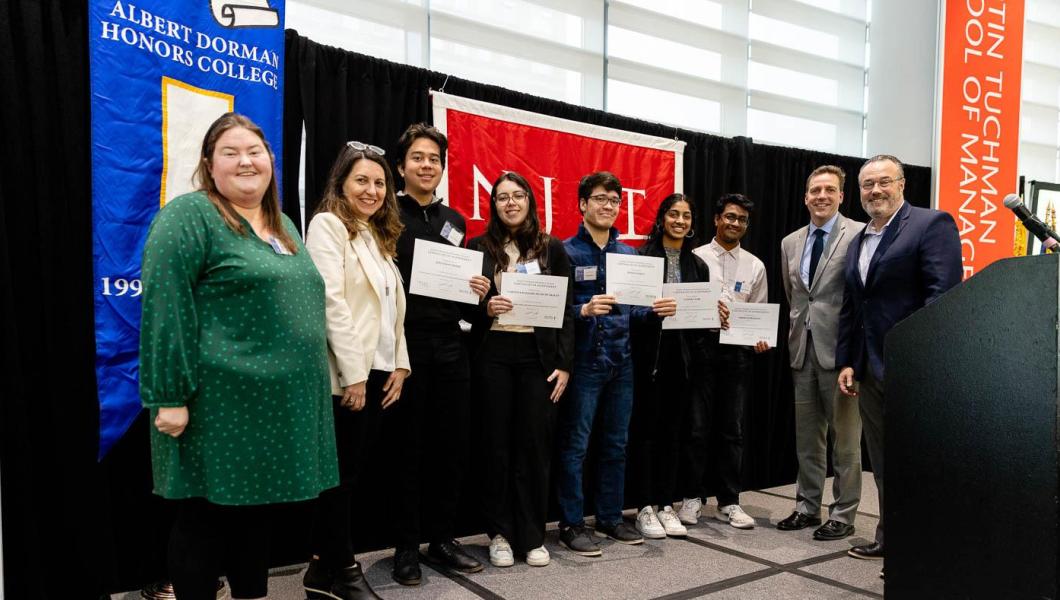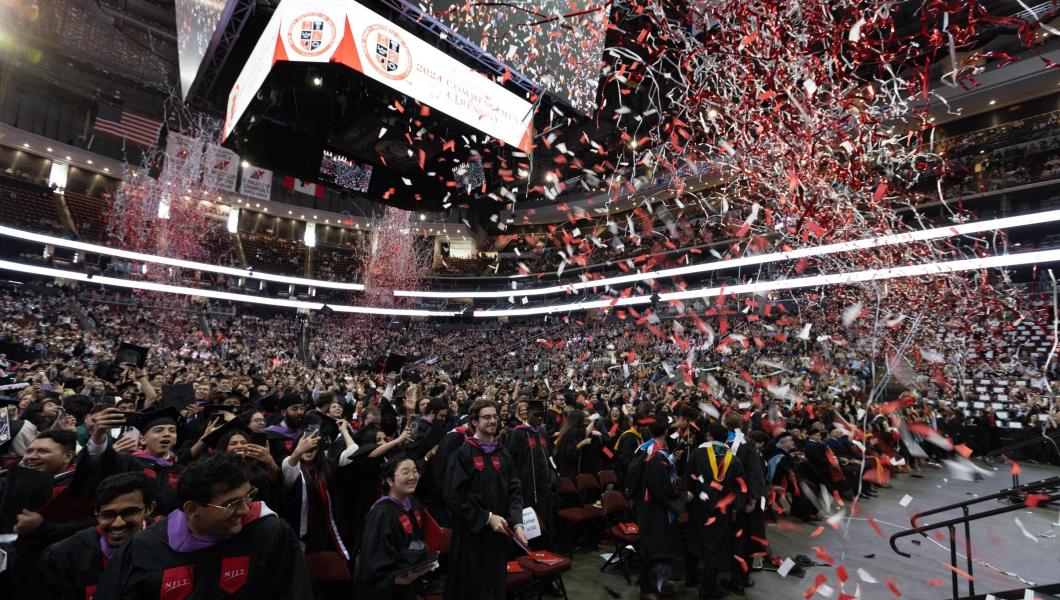Honors Students Learn to Merge Information Tech and Social Consciousness

Ying Wu College of Computing Assistant Prof. Michael Lee, in an effort to help informatics students consider social consciousness, began teaching a new course last spring, Design Thinking: Addressing Structural Inequality, which will be offered again in spring 2021 due to its success.
The course, IS-485, catered to students from Albert Dorman Honors College and emphasized real-world projects that apply digital solutions to problems faced by local communities and non-profit organizations. It's an area of emphasis for Lee, who is the Dr. Joel & Dr. Diane Bloom Honors Faculty Fellow in STEM Leadership.
"It's a way of thinking about how to help individuals using technology. You also have to think about who you're not helping or certain biases that come along with it," explained Lee, whose course had nine students. They divided into four project teams and then switched to mock solutions when COVID-19 hit in the middle of the semester, because working hand-in-hand with real organizations was no longer possible.
The projects were Home Slice, which aimed to help K-12 students who don't track well academically (Shehab Ibrahim, Parth Merchant, Brendan Tam); CheckUp (Tejasree Seelam, Ross Bonifacio), which adds useful health insurance information to job listings so applicants can better consider which positions are good fits; GearUp (Srushti Karra, Shruti Warrier), to teach first-generation college applicants about processes and opportunities; and uSave (JunSean Fung, Joe Demcher), to develop lower barriers-to-entry for online information about healthy eating in lower-income communities.
Seelam, of Edison, graduated in May with a B.S. computer science and now works as a technology analyst at Barclays.
"The project was to create something that could solve a problem. We decided to go with the problem of how a lot of young people come out of college and they don't really know much about the insurance system or healthcare in general. With a lot of job search engines it's not really transparent," she noted.
Although the project was theoretical, Seelam said she and her partner both believe the idea could be implemented by major career websites. Similar ideas have shown up at hackathons, she added.
"We focus on what designers do, what tools they use and we look at user interfaces," Lee said. " I told them to pick problems that were personally meaningful and interesting. I was very impressed by the background research the students did. Usually I train graduate students to do this."

